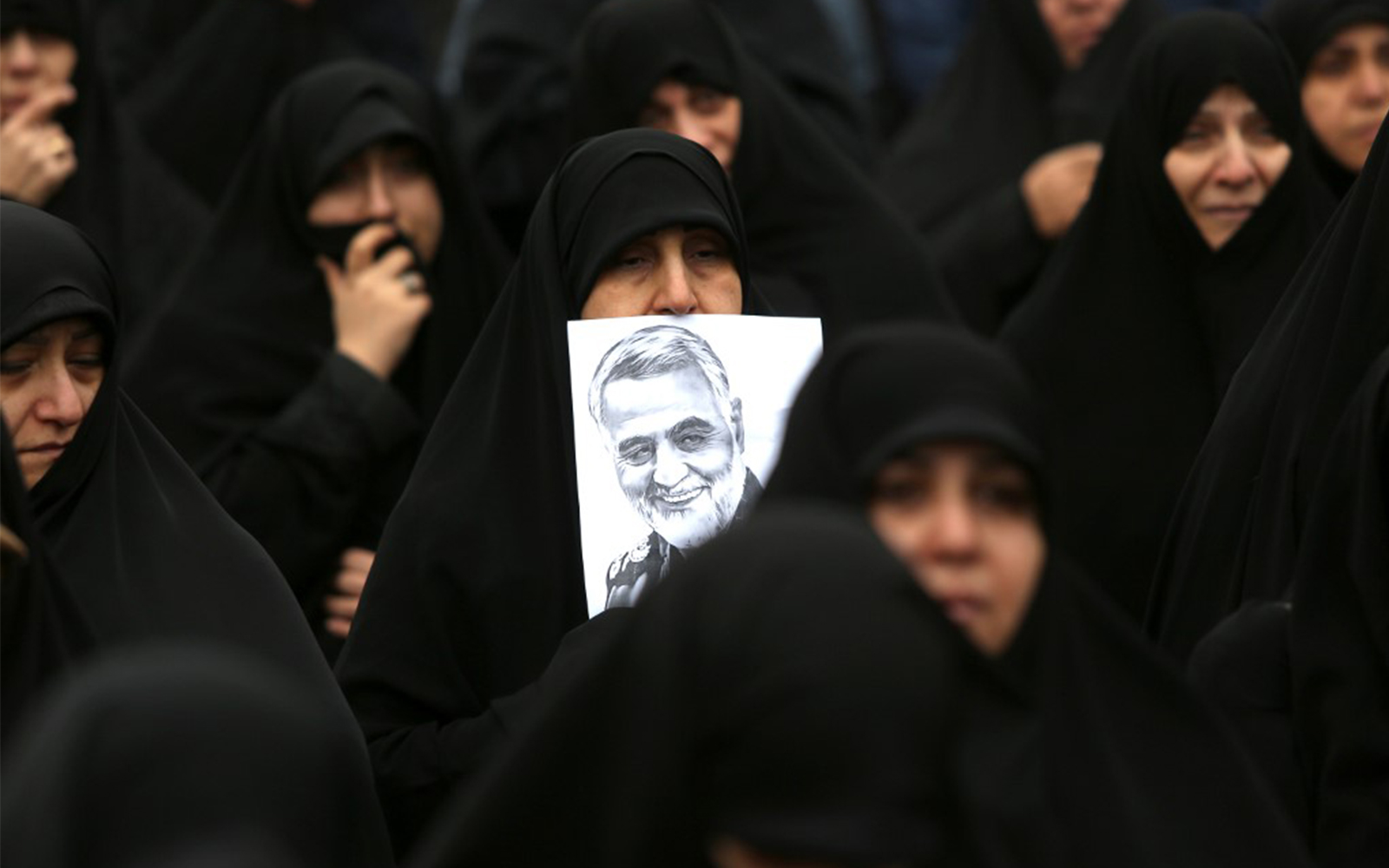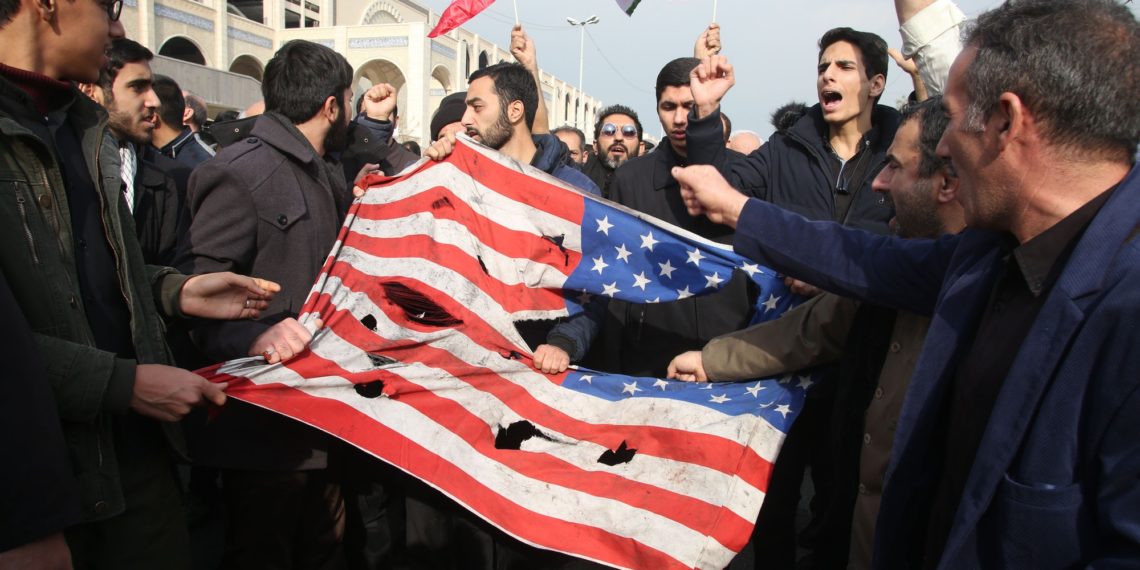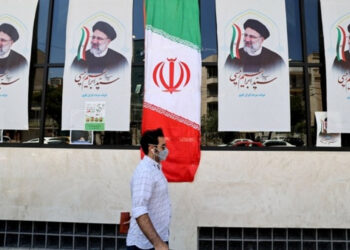It is accepted that countries pursue their “national interest” and not that of others. Some might even add that touting the interest of others undermines the projection of power and induces further conflict.
However, besides acting in what should more accurately be coined “perceived national interest,” it seems prudent for policymakers to also interject a degree of morality as a limited insurance policy for unfolding events not going according to plan. Morality in foreign policy buys a country a degree of goodwill when things go horribly wrong; it’s insurance to limit blowback.
America’s policies toward Iran illustrate that, regardless of its pretensions to morality and selflessness, it has shown little morality and selflessness in its dealings with the country since WWII.
US Policies Toward Iran
America’s policies toward Iran started on a high note after WWII. During the war, Iran was occupied by Russia from the north and Britain from the south. In the conflict’s aftermath, Russia was unwilling to leave northwestern Iran. The United States stood firm in support of Iranian sovereignty, a stand that won it much affection among all Iranians, including the ruling classes. But this show of morality was short-lived.
In 1953, Britain boycotted Iran’s oil exports in retaliation to the country’s attempt to nationalize its oil reserves. This was followed by the U.S. joining Britain to overthrow Iran’s elected prime minister and restore the Shah to the throne. The coup was immoral and not implemented to benefit Iran but to control and plunder the country.
Following 1953, the U.S. supported the Shah’s policies, which became increasingly dictatorial, in part leading up to the Iranian Revolution of 1979. The Revolution was the build-up after years of oppression and neglect of the average Iranian’s development.
In the aftermath of the Revolution, a ragtag bunch of students took over the U.S. embassy in Tehran. Conditions rapidly deteriorated after the students took the condemnable step of taking hostage 52 American embassy staff members in the name of preventing another coup. More troubling was Ayatollah Khomeini’s endorsement of the unlawful act.
Feeling helpless, the U.S. was open to anything that would humiliate and punish Iran and result in the speedy release of the 52 hostages. The U.S. saw this no-holes-barred and immoral stand in its “perceived national interest.”
Fallout of Support for Saddam Hussein
Hence, it was not surprising that when Saddam Hussein invaded Iran, hoping to gain territory and settle an old score in a strategic area to afford better access to the waters of the Persian Gulf, the U.S. gave its full-backing, at least behind the scenes. The U.S. saw it in its perceived national interest to support Hussein’s aggression.
The U.S. took the immoral path to back Hussein and isolate Iran. Iran had little access to weaponry, while Iraq was freely supplied and showered with billions of dollars in loans and gifts. Iran found itself helpless, facing a loss of territory and occupation.
But as Iranians were fighting to keep their country together, they managed to expel Iraqi forces and take the fight into Iraq. With this turn of events, the U.S. and its European allies, realizing that the only way Iraq could defend itself was with outlawed chemical weaponry, exported these to Iraq. The Iraqi forces used their chemical weaponry with impunity and turned the tide, killing thousands of Iranians and leaving over 10,000 in oxygen masks as a permanent reminder to Iranians of their international vulnerability.
During Iraq’s murderous war on Iran in the 1980s, the US supported Saddam Hussein
US intelligence officials gave the location of Iranian troops to Iraq, fully aware that Saddam’s military would attack with chemical weapons, including sarin and mustard gashttps://t.co/Ppnfnu8fRi
— Ben Norton (@BenjaminNorton) January 6, 2020
The immorality of U.S. foreign policy is laid bare in the 1999 book Man Without A Gun (page 88), written by former Assistant Secretary-General of the U.N. and the negotiator for the Iran-Iraq peace accord, Giandomenico Picco. He reports that when peace was at hand the U.S. Secretary of State, George Schultz, suggested that maybe the U.N. should call off its peace negotiations.
In addition to the hundreds of thousands of Iranian casualties and injuries, the lessons of the war were stark to most Iranians: global powers, including the U.S. and Western Europe, flaunt all international laws when their “perceived national interest” is at stake; foreign powers say one thing and do the opposite; the Persian Gulf is a dangerous place, and Iran needs a strong deterrent force and a strong ally; the clerical regime and the Revolutionary Guards saved Iran from dismemberment, or at least from prolonged occupation and territorial loss; Iran cannot depend on international law and order and must develop deterrents to external aggression.
Rise of General Soleimani
The war with Iraq and all that went with it impacted Iranian decisions in several ways. Almost immediately after hostilities ended, Iran started to ratchet up its domestic weapon manufacturing capabilities and expand the reach of its external intelligence services. This capability had given America, the Soviets, Britain, and France power, and Iran needed this same power at least in its neighborhood.
Qassem Soleimani became the mastermind of this policy and developed proxies and alliances. The regime in Tehran had nurtured Hezbollah as a regional surrogate to project regional power and looked to cooperate with Hamas. The Tehran-Damascus axis was strengthened as the clerical regime’s existential regional alliance. And some two years after the war with Iraq, Iran embarked on its quest to master the nuclear fuel cycle as the most cost-effective option for self-defense and the projection of regional power.
The United States just spent Two Trillion Dollars on Military Equipment. We are the biggest and by far the BEST in the World! If Iran attacks an American Base, or any American, we will be sending some of that brand new beautiful equipment their way…and without hesitation!
— Donald J. Trump (@realDonaldTrump) January 5, 2020
While the U.S. may label Soleimani a terrorist, to most Iranians, he was the mastermind who developed Iran’s capacity to defend itself. America justifies killing its adversaries to protect itself and yet denies Iran the same right. Moreover, the assassination of General Soleimani has turned many of those previously opposed to the regime in Tehran to back the regime and turn against the U.S., as evidenced by social media postings.
The Future
After Soleimani’s assassination, a new series of events will unfold. No one can predict these developments, but they will be ever more hostile because those affected will perceive revenge, selfishness, and narrow national interest as their motivating factors with not an ounce of concern or morality from the perpetrators.
Did U.S. policymakers foresee all of the fallout that can be traced to the coup of 1953, such as Iran’s nuclear ambitions and its regional policies? In fact, the presently unfolding events, though traceable to 1953, may be more directly discernible to the killing of Soleimani.

The assassination appears more connected to the Iranian Revolution, Saddam Hussain’s invasion of Iran, and America’s over-the-top support for the brutal dictator. This support and these fallout were not in Washington’s “national interest.” The U.S. paid much in blood and treasure, and regional hostilities have only intensified.
If Washington had embraced morality and international law by condemning Iraq’s aggression in 1980 and had acted at the U.N. Security Council to punish Saddam Hussein and evict Iraqi forces from Iran, it would have resulted in a more immediate release of hostages, better Iran-U.S. relations, and a more cooperative Middle East.
Given human limitations in assessing policy fallout, it is advisable to adopt moral policies that consider the mindset of allies and adversaries. Negotiations are most effective if armed with extensive knowledge of the other party’s mindset, and morality affords cover when things go wrong. At a minimum, these would enhance America’s reputation around the world as a moral country, a status that can but only help when and if the U.S. has to intervene on foreign soil.
Disclaimer: The views and opinions expressed here are those of the author and do not necessarily reflect the editorial position of The Globe Post.





















